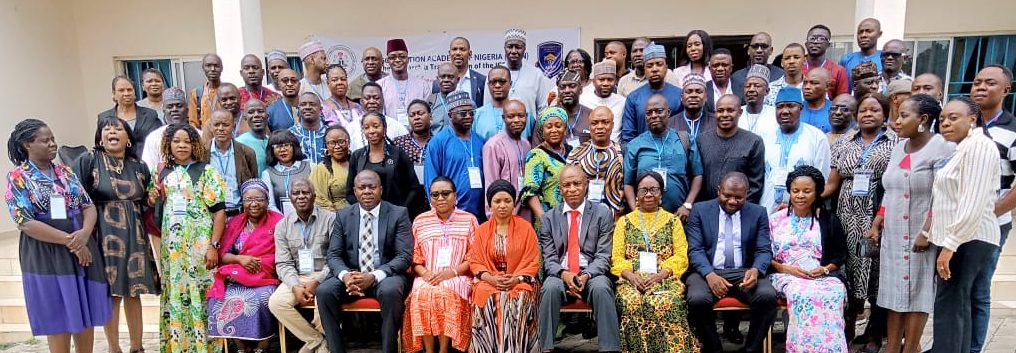The Independent Corrupt Practices and Other Related Offences Commission (ICPC) has trained over three hundred members of Anti-Corruption and Transparency Units (ACTUs) from different Ministries, Departments and Agencies (MDAs) across the country.
The 3-day workshop, organised by the Anti-Corruption Academy of Nigeria (ACAN), the research and training arm of ICPC, was the first to be held in the year 2023 as the Academy usually hold two workshops annually, targeted at ACTUs.
In his welcome remarks at the training which had as its theme, “Data Collection Skills for Corruption Prevention in MDAs”, the Provost of ACAN, Prof Olatunde Babawale, dwelt on the importance of data in advancing the skills of the anti-corruption fight especially in the areas of prevention.
He said “Data speaks to facts and statistics collected for reference or analysis. It provides empirical evidence on a subject area and helps to either corroborate or dismiss insinuations and speculations. The quality of data determines the extent to which a phenomenon could be subjected to evaluations and analysis, and consequently, the richness of the recommendations and policies that emanate from the process. Data helps organisations to more effectively determine the cause of problems. Indeed, the import of data cannot be overemphasized.”
While decrying that dearth of data had been a challenge to meaningful progress particularly in the anti-corruption space, Professor Babawale called on participants at the workshop to take the training seriously saying the knowledge gained would go a long way in making them to be on the same page with ICPC in the fight against corruption.
“Undeniably, for the war against corruption to be fought and won in all MDAs on a sustainable basis, all hands must be on deck. As allies in the war against corruption, we believe that members of ACTUs in the various MDAs need to be on the same page with the ICPC.
“This is one of the reasons for this workshop and it resonates with the Academy’s philosophy that corruption and related crimes can be controlled and managed through a system of training and re-training that will produce sound anti-corruption policies, operational efficiency and good management culture.
“This workshop also offers us the opportunity to remind ourselves of the important role useful data plays in our effort to prevent corruption in our workplaces and arm ourselves with the requite skills to collect data that is germane to success in corruption prevention efforts by MDAs.”


